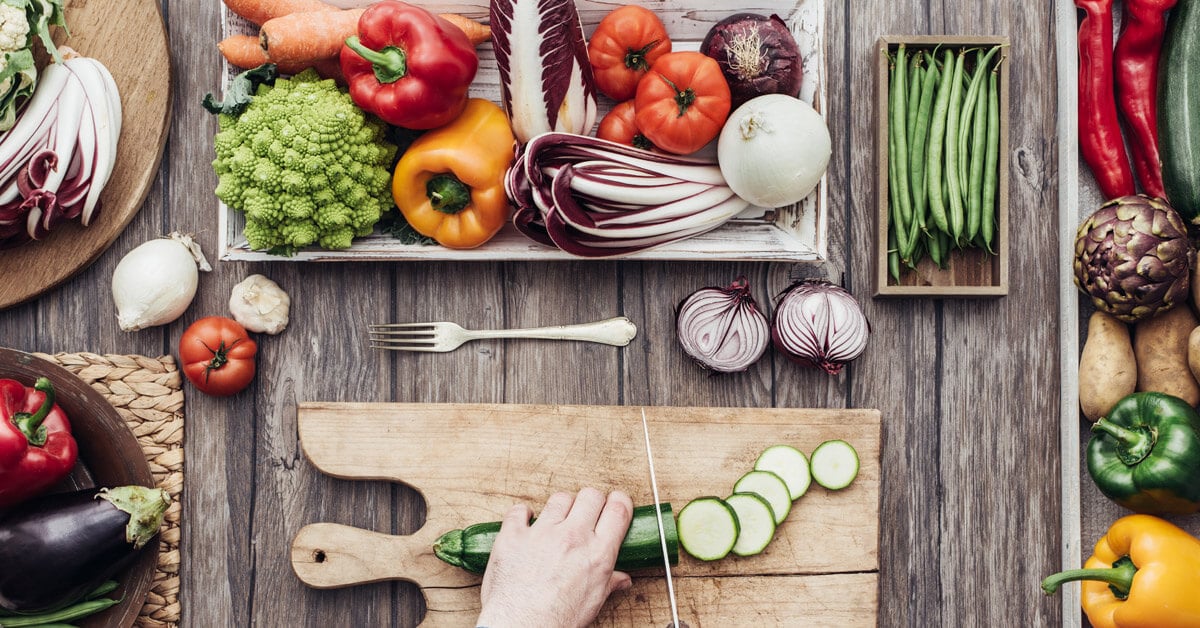You've decided to eat healthy. That's great, but how are you going to make that work in the long run? It can't be stressed enough. Meal prep is essential to maintaining a fitness-oriented lifestyle. During the week, it's going to be hard for you to find time to cook. This point is one of the most common reasons for failure. Either it's too exhausting, or the daily schedule doesn't allow it. To avoid this danger, you need a good plan. For keeping a clean diet, you should prepare your meals. Think about and write down everything you want to eat for the week. Pour these ideas into a form and create weekly and daily plans.
Make plans
First, you need to find a system that suits your needs. Ideally, you cook on Sunday for the entire work week and portion the food in pre-labeled fresh-keeping cans. However, you can also arrange things differently and, for example, divide the preparation between Sunday and Wednesday. Include time for shopping in your plan. Saturday and Tuesday would be ideal supermarket days.
The next step is to pick out the foods you will need for your goals and each meal. Make a note of when you need to get what and where. Decide on four different alternatives for breakfast, lunch, dinner and snacks. You can change this every week if you want. In order not to throw away food, you should take into account the ingredients you already have. It is very important to have an adequate intake of high quality proteins. Good meats and many types of fish have more than plenty of it. Plant sources of protein include legumes and grains.
Write down all meals in detail. This also applies to the easy-to-prepare meals. Hang the list somewhere in the kitchen (refrigerator, wall cabinets, free wall, etc.).
Give yourself time
At first, this may slay you because it looks like a lot of work. Humans are creatures of habit. It takes your brain an average of 21 days to form new synapses for changed behaviors. Give yourself a month or six weeks to be sure. That's a manageable amount of time. This way you can outsmart the concerns of your mind, which only wants to protect you. By the end of that period, it will already be conditioned differently and will be more friendly to the amount of work involved in meal prep accordingly. After six months at the latest, it will be as casual and normal to you as going to the gym.
Beware of the flood of recipes
Be good to yourself and make sure you have enough variety in your weekly plans. If you eat the same thing every day, your body might get the idea that it doesn't want to process the nutrients from other foods. Don't overdo it. There are tons of cookbooks, diets and recipes in book form as well as in magazines or on the internet. Don't let them drive you crazy. On average, everyday people eat only twenty different dishes in their lifetime. Exceptions such as weddings, birthdays, etc. do not count. The more recipes you want to implement, the more difficult the whole thing becomes. The number 20 is a good guideline.
Your Meals Template
To keep your metabolism at a consistent level, breaking it up into five to six meals is ideal. Here is an example of how you can divide the day for you:
Meal 1: Breakfast
Meal 2: Mid-morning snack
Meal 3: Lunch
Meal 4: Afternoon snack
Meal 5: Dinner
Meal 6: Late Night Snack (optional)
Cooking times
Once you've worked out the four (to five) different options for each category, it's on to creating the different preparation schedules, which you should divide into days and weeks.
Regarding cooking times, it makes sense to take one or two evenings or afternoons per week. As described, Sundays and Wednesdays work well. Weigh the ingredients and finished dishes carefully. Write down these values along with the respective calorie numbers and nutrient information. You'll quickly get a sense of how to estimate the amounts of each food with your naked eye. If you're preparing meals for the whole family, you won't want to weigh your kids' food. You don't have to. Keep your long-term goals in mind as you prepare.
The portioning of the dishes requires a sufficient number of containers, preferably suitable for freezing. You have to be smart when dividing up the food. In Germany, Friday is considered a fish day. This is irrelevant for you. You should eat your fish meals on Monday - Tuesday at the latest. Plan accordingly and put the portions in the freezer far in advance.
That's a good keyword. You really need a chest freezer or a freezer. You won't get far with the ice compartments that are installed in standard refrigerators. Good appliances with an energy efficiency rating of A++ can be purchased for well under 200 euros.
Count the calories
At first glance, it seems like too much effort to write down all the calories you eat every day. For you, this does not apply (anymore) for several reasons:
- The app stores for smartphones and tablets offer a whole range of programs to help you with this task. It makes things easier, since you always have your phone with you everywhere anyway.
- The task only seems very extensive at first. You have prepared, weighed and portioned your food yourself. As already mentioned, you should note down everything exactly. You only have to do this once for each meal or ingredient, then the individual meals are noted in your app. From then on, you just click on the desired meal and your smartphone does the rest.
- You remember: Humans eat only 20 different foods. The amount of data you need to capture is manageable.
- The smartphone app has one big advantage. Since you have to write down all the calories, you'll think three times about buying something to snack on at the kiosk. This is a small but effective obstacle that helps you stay disciplined.




